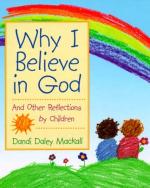|
This section contains 1,111 words (approx. 4 pages at 300 words per page) |

|
Introduction
In literature that explores the issues of race and prejudice, religion often emerges as the foundation of conflict and divisiveness between individuals or groups. This is not surprising, since such literature by definition centers on ideas of exclusion and intolerance. In addition, religions are often closely associated with specific ethnic or racial groups, as with Judaism; in these cases, religion can become a source of persecution for a character or group. However, religion can also appear as a positive force that unifies and sustains those who endure suffering borne of racism and prejudice.
Religion in Literature
Arthur Miller's The Crucible (1953) is a classic example of how religion can become a lightning rod for hysteria that divides a community and targets individuals for persecution. The play depicts the infamous witch trials in Salem, Massachusetts, in 1692. In the drama, the townspeople engage in a frenzy of accusation and confession...
|
This section contains 1,111 words (approx. 4 pages at 300 words per page) |

|


